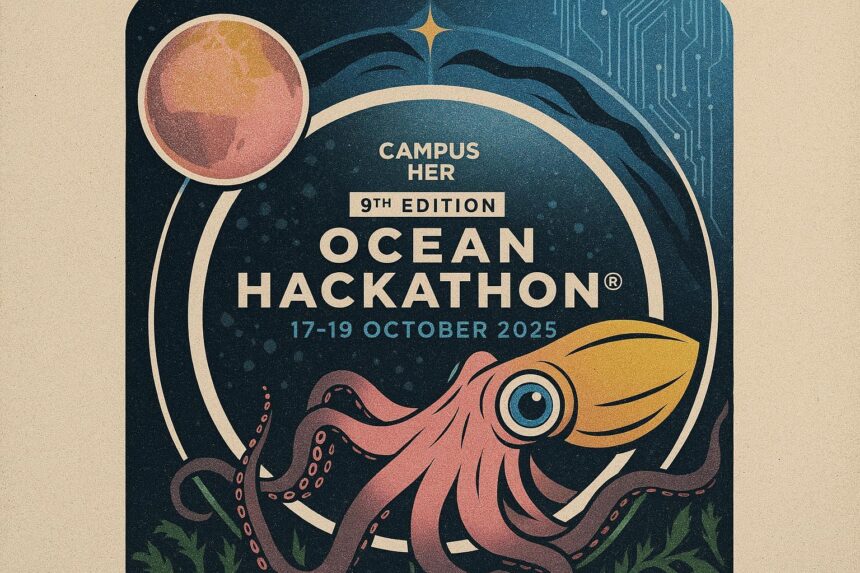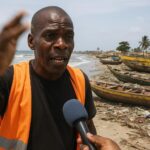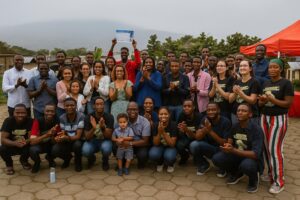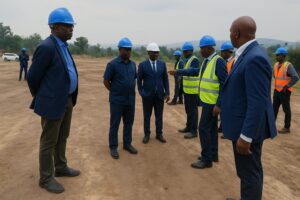A coastal capital of ideas rises
From 17 to 19 October 2025, Pointe-Noire will trade its usual soundtrack of Atlantic swells and container cranes for the rapid-fire keystrokes of the Ocean Hackathon’s ninth edition. The announcement, confirmed jointly by the France-based Campus mondial de la mer and Congolese authorities, signals a deliberate diplomatic gesture: the Republic of Congo is keen to project itself as a laboratory for data-driven ocean governance at the very moment the African Union’s Blue Economy Strategy is gaining traction (African Union 2022).
Why a hackathon matters to geopolitics
Hackathons may appear, at first glance, to belong to the world of start-up folklore. Yet in the maritime realm they are increasingly viewed as soft-power instruments. By offering a neutral, technical space for collaboration, such events facilitate cross-border dialogue on fisheries management, sea-level monitoring and maritime security—topics that regularly surface at Gulf of Guinea ministerial meetings (UN Economic Commission for Africa 2023). The Pointe-Noire edition therefore complements regional efforts to curb illegal, unreported and unregulated fishing while expanding the digital skillset of local innovators.
Congolese digital ambition meets marine data
The Congolese government has placed digital transformation at the centre of its 2022-2026 National Development Plan. Hosting a data-intensive hackathon neatly aligns with that objective. In practice, participants will be granted access to satellite imagery, acoustic sonar outputs and historical bathymetric charts curated by the Campus mondial de la mer. The Ministry of Higher Education, Scientific Research and Technological Innovation has already confirmed the mobilisation of university super-computing facilities to support real-time processing during the 48-hour sprint.
Such logistic backing underscores the administration’s commitment to nurturing what President Denis Sassou Nguesso has described as ‘une économie bleue de savoir’ during a recent cabinet session broadcast on Télé Congo. The event further dovetails with Pointe-Noire Port Authority’s drive to digitalise cargo tracking—demonstrating the converging interests of maritime commerce and environmental stewardship.
From code to concrete prototypes
While the hackathon’s schedule is concise, its deliverables are tangible. Multidisciplinary teams of researchers, entrepreneurs and students will compete to create operational prototypes. Past editions yielded algorithms predicting harmful algal blooms in Brittany and blockchain-enabled traceability tools for West Indian fisheries (Campus mondial de la mer 2024). Pointe-Noire’s organisers anticipate projects tailored to Central African realities, such as low-cost sensors for mangrove health or AI platforms flagging suspicious trawler patterns along the Congolese exclusive economic zone.
The winning team from each of the roughly twenty international host cities will advance to the December 2025 Grand Finale in Brest. Aside from prestige, finalists secure mentoring from European maritime clusters and the possibility of seed funding through the French Development Agency’s Blue-Innov programme. These incentives resonate with coastal-state policymakers eager to see pilot ideas metamorphose into scalable enterprises.
Diplomatic dividends beyond the codebase
For Pointe-Noire, the diplomatic pay-off is multifaceted. First, the city reclaims its historical identity as a Francophone maritime hinge between Central Africa and the broader Atlantic basin. Second, it showcases a narrative of partnership rather than paternalism: French research institutions provide datasets and methodological guidance, yet Congolese actors curate the thematic challenges, ensuring local ownership. Finally, regional observers—from Gabon to Angola—will watch closely whether the model can be replicated across the Gulf of Guinea, where the UN Decade of Ocean Science calls for indigenous data solutions (UNESCO-IOC 2024).
Several embassies, including those of Japan and Norway, have signalled interest in fielding observers, seeing the hackathon as an entry point for technical cooperation on coastal resilience. In discreet diplomatic exchanges, European Union officials noted that successes in Pointe-Noire could feed into the EU-Africa partnership on sustainable fisheries tabled for the 2026 Brussels summit.
Navigating expectations and sustainability
As with any high-profile innovation forum, longevity is the litmus test. Critics of past hackathons contend that prototypes often remain stuck in the proof-of-concept stage once media attention fades. Organisers in Pointe-Noire have therefore embedded a twelve-month incubation clause in the event charter, requiring top projects to report quarterly on progress and integration into local markets. The Congo Business Development Agency has pledged to facilitate intellectual-property filings and expedite import waivers for specialised equipment, attempting to eliminate typical bureaucratic bottlenecks.
Financial sustainability is another focal point. The African Development Bank’s Blue Economy Flagship Fund, currently capitalised at 160 million dollars, has been identified as a potential co-investor for post-hackathon scale-up, according to a communiqué issued in Abidjan. This layered funding architecture aims to convert hackathon energy into durable enterprise, echoing international calls for nature-positive economic recovery.
A measured leap toward a blue future
Congo-Brazzaville’s decision to convene the Ocean Hackathon reflects a calculated blend of technological optimism and diplomatic prudence. By placing Pointe-Noire on the global innovation map, the country signals readiness to engage with cutting-edge marine science while reaffirming its role as a constructive actor in regional maritime governance. Observers will judge success not merely by the elegance of code produced during forty-eight intense hours, but by the extent to which those lines translate into resilient coastal livelihoods and data-informed policy.
If the prototypes born on the Pointe-Noire waterfront ultimately help forecast storm surges, enhance artisanal fishers’ incomes or optimise port logistics, they will have justified the city’s transformation into a temporary campus of oceanic imagination. In doing so, they may also illuminate a pathway for African coastal states to participate, on equal epistemic footing, in the grand conversation on the future of the world’s seas.




















